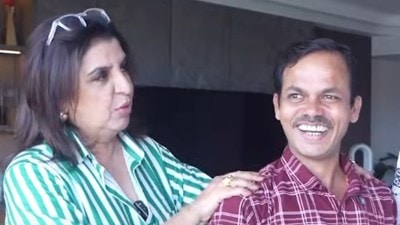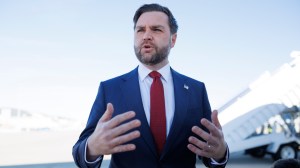Last act at Los Alamos
The things we are working on are so terrible that no amount of protesting or fiddling with politics will save our souls.8212; Edward Teller...

The things we are working on are so terrible that no amount of protesting or fiddling with politics will save our souls.
8212; Edward Teller
That was July 1945. Action had drawn to a close in most theatres of war. But Japan held out. At Los Alamos in the New Mexico desert, a most remarkable gathering of physicists 8212; most of them emigres from Europe 8212; was keeping good its promise to deliver the first atomic bomb to America. And the first stirrings of guilt were palpable. Teller was responding to Leo Szilard, a fellow Hungarian-born physicist associated with the Manhattan Project.
Szilard had made an appeal to his colleagues: 8220;It would be a matter of importance if a large number of scientists who have worked in this field nuclear fission went clearly and unmistakably on record as to their opposition on moral grounds to the use of these bombs in the present phase of the war.8221; His authorship of this appeal in a way marked the end of innocence in physics. Six years earlier he had scripted a letter addressed to F.D. Roosevelt and signed by Albert Einstein, urging the US government to coordinate the efforts of scientists working on chain reaction. It alerted FDR to the advances made in Hitler8217;s realms towards 8220;extremely powerful bombs of a new type8221;. Now, Hitler was dead, his army defeated, the German bomb project exposed as something of a joke. Japan could be the only target.
Szilard was perhaps ahead of his colleagues in expressing unease about this new weapon of unknown power. But they all had to go through the drill, each was constrained to rationalise his role. This public trial must seem out of place today; try visualising geneticists, computer scientists and warplane designers conversing with their conscience today, you can8217;t. Remember it was not just the nuclear bomb that was at issue. The men and women who worked on or assisted with the bomb were more or less the same folks who had pioneered quantum mechanics. They had wrought a scientific revolution that demanded of its theorists more than mere genius; the transition from Newtonian certitudes to quantum probabilities required a large heart and a breadth of vision.
And they did it, most of them enlarged our understanding of science and its responsibilities by recapping their days in the desert and after. Like Robert Oppenheimer, head of the Manhattan Project who quoted from the Gita 8220;I am become the Destroyer of Worlds8221; to comprehend the first nuclear test. Like Enrico Fermi, the Italian exile who achieved the first fission chain reaction in 1941 and set Teller off in pursuit of the hydrogen bomb. Like Richard Feynman, one of the youngest scientists on the project, then attending to a dying wife. And, beyond the high-security environs at Los Alamos, like Niels Bohr and Werner Heisenberg. Like so many more who explained that the atomic bomb would have been delivered later if not then, that it was not so easy to set the clock back to a nuclear weapons-free world.
Teller, who died at 95 this week, was however never forgiven. He remained a villainous figure. Widely considered the model for Dr Strangelove, he remained a paradoxical figure. Till almost his last days, he continued to work energetically; he exercised great influence on successive American governments, but long long ago he had been ostracised by his fellow travellers from the war years. Why? It could not be simply his fatherhood of the hydrogen bomb 8212; didn8217;t Andrei Sakharov also work on the Soviet H-bomb? It could not be simply his much later endorsement of Ronald Reagan8217;s Strategic Defence Initiative Star Wars.
It is, of course, his testimony against Oppenheimer that holds the key. Teller would have agreed. In his comprehensive 2001 memoir, the hurt is audible 8212; as is his constant endeavour, right from first acquaintance in the 1930s, to prove how sincere he was in assisting Oppenheimer, how devoted he was. You can catch his voice break as he repeatedly pleads there was no personal score being settled when he recommended at the US Atomic Energy Commission hearings in 1954 that Oppenheimer8217;s security clearance be revoked. Oppenheimer had been opposed to development of a fusion bomb, and by 1954, the first thermonuclear device had been successfully tested. He submits that, in fact, in the 8217;60s he recommended Oppenheimer for the Fermi Prize.
Teller8217;s death is perhaps the last act in one of the most fascinating chapters in the history of science. He was its one villain; but it took the eminence of the rest of the cast of characters to render him one.
- 01
- 02
- 03
- 04
- 05































